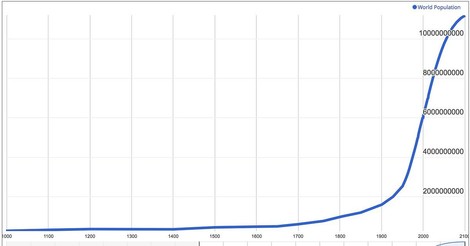Your podcast discovery platform
Curious minds select the most fascinating podcasts from around the world. Discover hand-piqd audio recommendations on your favorite topics.

piqer for: Climate and Environment Global finds
Andrea is a writer and researcher based out of Chicago. Andrea has a Bachelor's degree in environmental science from The Ohio State University and a Master's in Environmental Planning and Management at National Taiwan University, where she specialized in climate adaptation and urbanization. She writes for TaiwaneseAmerican.org, and sends out a biweekly newsletter which includes articles on politics, environment, identity, and intersections of race, class, and gender (http://eepurl.com/bPv-F5).
Why We Shouldn't Be Talking About Overpopulation
Environmental problems are rampant. Could one possible solution be to curb our "overpopulation" problem? This is still a common question among environmentalists, but perhaps it shouldn't be. This piece outlines why one environmental journalist does not entertain talking about population control as a solution to anything.
Although numbers do indicate that added population does have an environmental impact, "talking about population growth is morally and politically fraught, but the best ways of tackling it (like, say, educating girls) don’t necessitate talking about it at all." One large issue is that when political movements or leaders discuss population control, it has historically had racism, xenophobia, eugenics, and other unsavory influences. Only particular populations were seen to need control, and they tend to be of the poorer, browner, immigrant kind. This narrative continues today.
The author of this article claims that "the best ways to address population don’t necessarily involve talking about it at all." One of these ways is female empowerment and family planning. "We know that women, given the resources and the choice, will opt for smaller families. Those are the two most powerful levers to bend the population curve. They are also, in and of themselves, an enormously powerful climate policy."
Another issue with the overpopulation argument is the neglect of a simple fact: The wealthy emit more carbon emissions than the poor. The wealthiest 10% of the world emit almost half of all consumer lifestyle emissions, while the poorest 50% are responsible for around 10% of lifestyle emissions, as illustrated by a handy graphic in the article. The rest of the article outlines many ways to "solve" issues of "overpopulation" without falling into its many pitfalls. Environmental and climate issues intersect broadly with many others, like global inequality and women's empowerment. It's high time we as environmentalists geot behind those.
